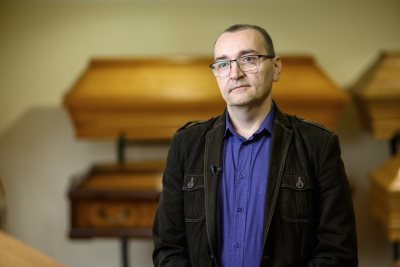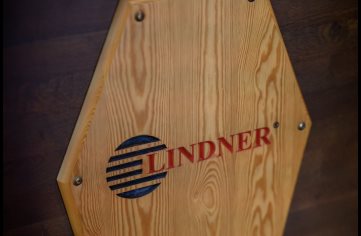 “What sets us apart from our competitors is our out-of-the-box thinking,” states Tomasz Kilarksi, Sales Specialist at Lindner.
“We try to introduce new innovation and constantly develop new ideas. We also invest heavily in our production to help ensure we remain competitive.
“What sets us apart from our competitors is our out-of-the-box thinking,” states Tomasz Kilarksi, Sales Specialist at Lindner.
“We try to introduce new innovation and constantly develop new ideas. We also invest heavily in our production to help ensure we remain competitive.
Since its establishment, Lindner has focused primarily on technology and production rates at every stage of manufacturing. A case in point is the company’s latest investment, a fully automated paint line that is among the most modern of its type in Europe. The two new automated paint booths at Lindner’s headquarters and manufacturing facility in Wągrowiec, Poland, both feature FANUC robots.
To help turn the company’s ambition of an automated paint line into reality, Lindner engaged with Wagner Service, a leading specialist in technologically advanced equipment and systems for the application of coatings and paint to surfaces. Wagner Service set about designing a robotic application system in response to the customer’s needs and the challenges presented. At the heart of both paint booths, Wagner specified a FANUC P-250iB/15 six-axis industrial paint robot.
 FANUC paint (P-series) robots are made entirely of aluminium to avoid any potential for sparks, with all wiring integrated inside the hollow wrist. These innovative robots carry ATEX certification, allowing them to work with solvent-based paints. In addition, the robot, especially its wrist, mimics as much as possible the dexterity of a human operator. FANUC P-series paint robot are custom-sealed with compressed air so that no dust or liquid can penetrate.
FANUC paint (P-series) robots are made entirely of aluminium to avoid any potential for sparks, with all wiring integrated inside the hollow wrist. These innovative robots carry ATEX certification, allowing them to work with solvent-based paints. In addition, the robot, especially its wrist, mimics as much as possible the dexterity of a human operator. FANUC P-series paint robot are custom-sealed with compressed air so that no dust or liquid can penetrate.
Each FANUC robot at Lindner features two application systems, allowing the company to change the high-pressure paint gun for a low-pressure gun when applying wood stain and patina. Spraying these products comes with special challenges, as Adam Leszczyński, Sales Director at Wagner Service explains: “Wood stain and patina are hard to apply automatically as the eye of the painter is of great importance. As a result, we had to mimic the sensitivity of an experienced painter in the software and control.”
 He continues: “Another challenge posed by Lindner was an additional step in the process: surface grinding. Here, we designed a grinding head that we integrated with a FANUC R-2000iC/125L industrial six-axis robot.”
He continues: “Another challenge posed by Lindner was an additional step in the process: surface grinding. Here, we designed a grinding head that we integrated with a FANUC R-2000iC/125L industrial six-axis robot.”
Thanks to the automated paint line at Lindner, the company has seen a significant increase in product quality and repeatability, up from 6,000 to 7,000 units per month. Another major advantage is a reduction in the number of shifts required, from three to two, saving significant costs.
Krzysztof Bromberek, Lindner’s Proxy, Production and Organisation Director, concludes: “A precisely positioned and programmed robot does not make mistakes. Furthermore, the automation of the paint line makes our work much faster, more ergonomic and above all, safer. We also see less damage on the production line as the coffins pass along very smoothly. More automation is inevitable in the future and we want to continue improving with robots.”